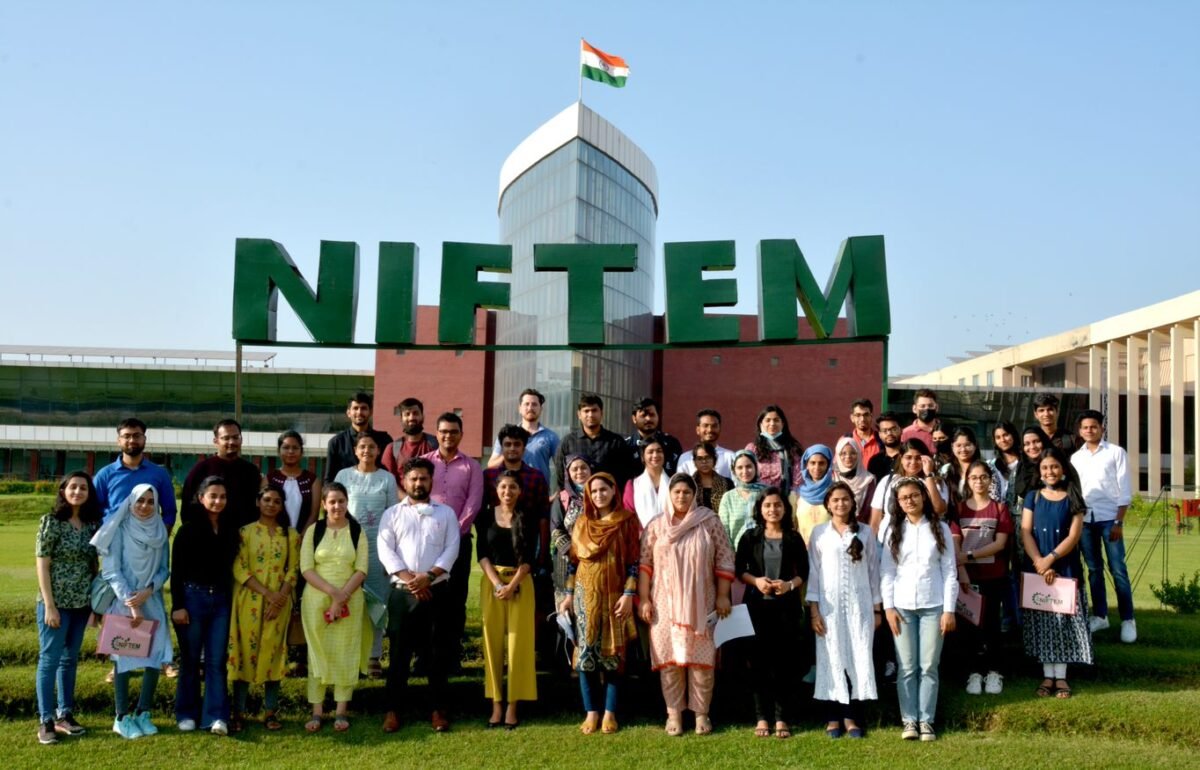NIFTEM-K hosts delegates of the International South-South Learning program on Food Fortification
National Institute of Food Technology Entrepreneurship and Management, Kundli (NIFTEM-K), under the aegis of the Ministry of Food Processing Industries (MoFPI), hosted a high-level international delegation comprising of 17 representatives from the ECOWAS (Economic Community of West African States) region, National Fortification Alliances, including technical experts and policymakers and officials from the West African Health Organization (WAHO), underlining the regional significance of this knowledge-sharing initiative, visited NIFTEM-K to study India’s successful food fortification initiatives
National Institute of Food Technology Entrepreneurship and Management, Kundli (NIFTEM-K), under the aegis of the Ministry of Food Processing Industries (MoFPI), hosted a high-level international delegation comprising of 17 representatives from the ECOWAS (Economic Community of West African States) region, National Fortification Alliances, including technical experts and policymakers and officials from the West African Health Organization (WAHO), underlining the regional significance of this knowledge-sharing initiative, visited NIFTEM-K to study India’s successful food fortification initiatives. The visit, organised by German Federal Ministry of Economic Cooperation and Development (BMZ) brought together representatives from Burkina Faso, Senegal, Nigeria, Côte d’Ivoire, Ghana, Benin, and Madagascar.
“This exchange represents a significant milestone in international cooperation for food fortification. As an Institute of National Importance, NIFTEM-K is proud to share India’s expertise and technological innovations in food fortification with our partners from Africa, contributing to global nutrition security” said Dr. Harinder Singh Oberoi, Director of NIFTEM-K.
The interactions led to deliberations over the international cooperation for fortification initiative. Mr. Arvind Kumar (Deputy Secretary, Ministry of Food Processing Industries-MoFPI), in his special address, emphasized on the crucial role of the Ministry in supporting such collaborative initiatives to enhance global nutrition. He also mentioned the important flagship schemes of the Ministry including PMKSY, PLISFPPI and the PMFME etc. Interactive session by the experts discussed over fortification standards, regulations, trade practices in India and the globe. Sh Arun Om Lal, Industry Chair Professor, NIFTEM-K while moderating the session provided insights into NIFTEM-K’s infrastructure, research capabilities, fortification facilities and advanced food processing facilities at pilot plants as well as FSSAI notified food testing facility of CFRA, underscoring its role in capacity building and industry partnerships.
Dr. Komal Chauhan, Head-CEFF and Dean (Research & Outreach), NIFTEM-K, warmly welcomed the national and international delegates, fostering meaningful discussions on strengthening fortification policies, scaling up effective interventions, and advancing food security. The visit provided a platform for knowledge exchange, international collaboration, and strategic partnerships, reinforcing NIFTEM’s commitment to driving innovation and excellence in food fortification on a global scale.
National Institute of Food Technology Entrepreneurship and


